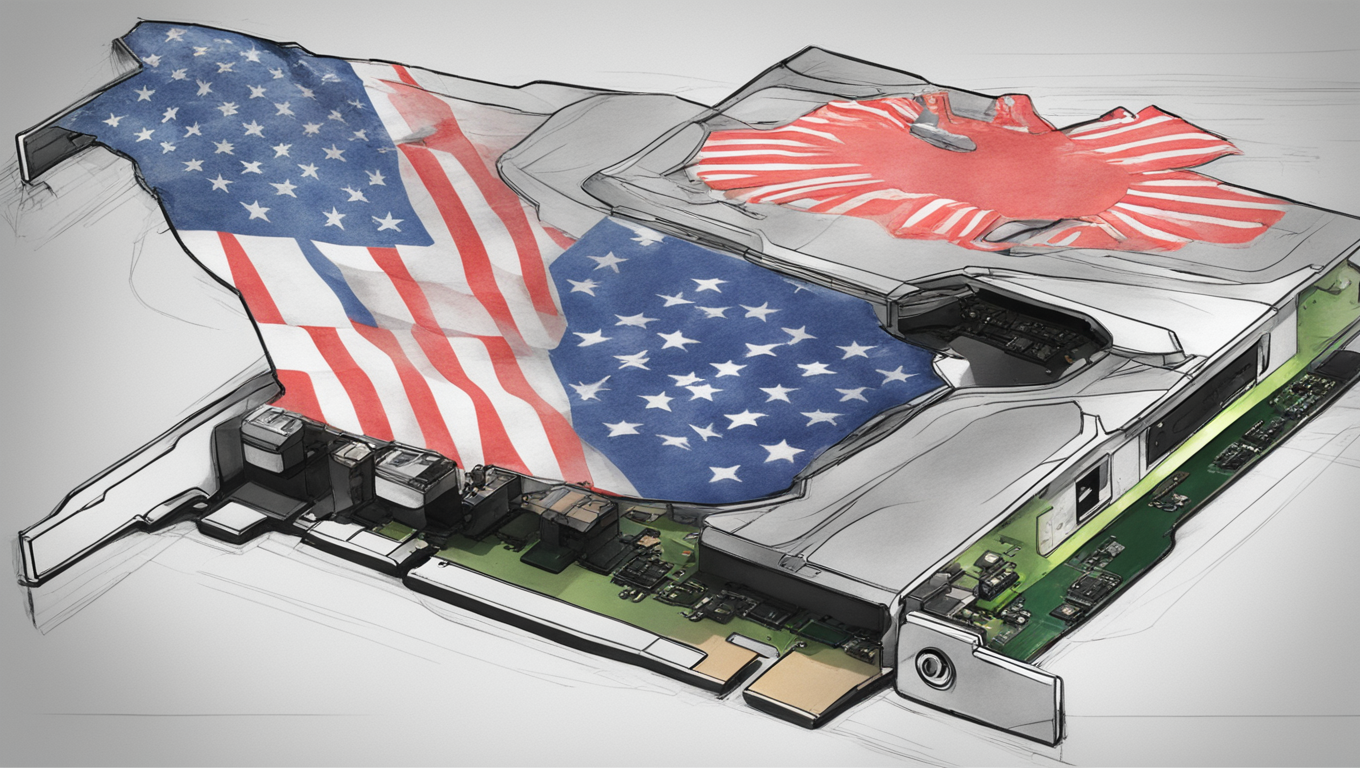Nvidia CEO's Sharp Criticism Of US Export Controls On Semiconductor Technology

Table of Contents
The Specific Export Controls Targeting Nvidia
The US government's restrictions primarily target Nvidia's high-performance computing (HPC) GPUs, specifically the A100 and H100 models. These chips are crucial for advanced AI development, supercomputing, and other data-intensive applications. The rationale behind these "Nvidia semiconductor export restrictions" stems from legitimate national security concerns: preventing the proliferation of advanced AI technology that could potentially be used for military or other sensitive purposes by the Chinese government or its affiliated entities.
- Specific models impacted: A100, H100, and related variants designed for high-performance computing. These chips find applications in AI research, data centers, and scientific simulations.
- Timeline of restrictions: The restrictions were initially implemented in 2022 and have since been updated and tightened, reflecting the evolving technological landscape and geopolitical tensions.
- Geographical scope: The restrictions primarily focus on exports to China, although they may have broader implications for other countries with close technological ties to China.
Jensen Huang's Criticism and its Implications
Jensen Huang's response to these "US export controls on Nvidia" has been notably outspoken and critical. He argues that the restrictions harm US competitiveness by hindering Nvidia's ability to operate in a key market and stifling innovation globally. He's voiced concerns about the long-term impact on Nvidia's revenue and future growth projections.
- Huang's statements: Huang has publicly stated that these restrictions are detrimental to both Nvidia and the US, arguing they impede technological progress and hand a competitive advantage to other global players. (Specific quotes can be added here once available from official sources.)
- Impact on Nvidia's revenue: The restrictions have undoubtedly impacted Nvidia’s revenue from the Chinese market, forcing the company to develop alternative solutions and potentially impacting future growth projections.
- Proposed solutions: Huang has indirectly advocated for more targeted export controls, suggesting that a blanket ban is overly broad and counterproductive.
The Broader Impact on the Semiconductor Industry
The ripple effects of these "Nvidia China chip sales" restrictions extend far beyond Nvidia itself. The entire semiconductor industry faces potential supply chain disruptions, particularly in the high-performance computing segment. The geopolitical ramifications are also significant, impacting US-China relations and the global technological balance of power.
- Potential shortages and price increases: Reduced supply of high-performance GPUs could lead to shortages and price increases, impacting various industries reliant on this technology.
- Impact on AI development: Restrictions on access to advanced GPUs could slow down AI development globally, potentially widening the technological gap between nations.
- Industry response: Other semiconductor companies and industry experts are closely watching the situation, anticipating similar restrictions or adapting their strategies in anticipation of future limitations.
Potential Future Scenarios and Solutions
Several potential future scenarios could unfold: the US government might ease restrictions, Nvidia might develop alternative solutions to circumvent limitations, or the conflict might escalate, leading to further restrictions or retaliatory measures.
- Policy options: More targeted export controls, increased investment in domestic chip production in the US, and enhanced international cooperation on technology export controls are among the potential solutions being debated.
- Long-term strategies: Both the US and Nvidia need to develop long-term strategies to address the complex interplay between national security, economic competitiveness, and global technological cooperation.
- Lobbying efforts: Nvidia and other industry players are likely engaging in extensive lobbying efforts to influence US policy decisions regarding semiconductor exports.
Conclusion
The challenges faced by Nvidia due to US export controls, highlighted by CEO Jensen Huang's strong criticism, have significant implications for the semiconductor industry and the global technology landscape. The ongoing debate underscores the complexities of balancing national security concerns with the need for global technological cooperation and economic competitiveness. To stay informed about further developments in "Nvidia export controls" and the ongoing debate surrounding US semiconductor policy, continue following news from reliable sources and look out for further analysis on Nvidia's response to export restrictions and the future of Nvidia under US export controls.

Featured Posts
-
 Wordle 1368 March 18 2024 Nyt Hints And Solution
May 22, 2025
Wordle 1368 March 18 2024 Nyt Hints And Solution
May 22, 2025 -
 Matthew Stafford Injury Reshaping The Steelers Quarterback Future
May 22, 2025
Matthew Stafford Injury Reshaping The Steelers Quarterback Future
May 22, 2025 -
 Bbc Antiques Roadshow National Treasure Trafficking Leads To Prison Sentences
May 22, 2025
Bbc Antiques Roadshow National Treasure Trafficking Leads To Prison Sentences
May 22, 2025 -
 Self Guided Walking Holiday Exploring Provence From Mountains To Coast
May 22, 2025
Self Guided Walking Holiday Exploring Provence From Mountains To Coast
May 22, 2025 -
 Klopps Agent Addresses Real Madrid Links Whats Next For The Liverpool Boss
May 22, 2025
Klopps Agent Addresses Real Madrid Links Whats Next For The Liverpool Boss
May 22, 2025
